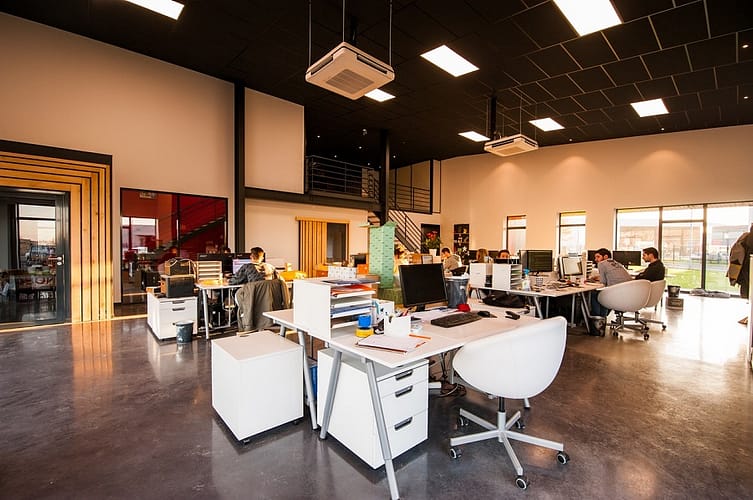When you think ‘startup,’ your mind most likely thinks of quirky offices in Silicon Valley. The startup surge, however, has spread to cities across the ocean. These cities are a hotbed of tech companies whose values continue to surge as investors scramble to grab the ‘next big thing.’ Here, we’ve covered some of the most promising tech companies that will continue to grow in the coming years.
Hottest Startups To Watch This Year
Mieron VR
Total funding raised: Undisclosed
Investors include: Undisclosed
Mieron is the World’s First Virtual Reality NeuroTherapy system that helping to rehabilitate patients all over the world. MieronVR, the company’s brand new virtual reality technology is being used by doctors and medical practitioners help patients rehabilitate from spinal cord and traumatic brain injuries
The Mieron library is full of locomotive training exercises, trunk stability, strength and conditioning, upper body mobility, lower body mobility, balance and stability exercises that complement physical therapy and occupational therapy practices. The goal is to improve range of motion, execution of tasks, independence by improved mobility, and mental wellness.
Streem
Total funding raised: $10.5 million
Investors include: Flying Fish Partners, Loup Ventures, Greycroft
Founded in 2017, Streem provides a simple and delightful customer service one can access with a tap on the smartphone. Its sophisticated technology uses computer vision, machine learning, object recognition, pose tracking and spatial mapping to deliver an enterprise-grade software.
Based out of Portland, Oregon, Streem is one of the few tech startups to have some stellar patents under its hood within a very short period.
dahmakan
Total funding raised: $9 million
Investors include: UpHonest Capital, White Star Capital, Partech, Y Combinator, Atami Capital
dahmakan is an online food delivery platform based out of Kuala Lumpur, Malaysia. Part of Y Combinator’s Summer 2017 batch, Dahmakan creates its own meals, offering about 40 options each weak from a database of 2,000 dishes. It uses artificial intelligence in food preferences, logistic, and spending habits to make food delivery affordable.
In a press statement about Dahmakan’s funding, White Star Capital managing partner Eric Martineau-Fortin said “Dahmakan is well-positioned to serve the growing demand for food delivery services in Southeast Asia with its unique, technology-forward approach of taking control of the entire value chain to provide affordable delivery options to SEA’s rising middle class.”
Artemis
Total funding raised: $10.5 million
Investors include: Brooklyn Bridge Ventures, Compound, Talis Capital, iSELECT FUND
Formerly known as Agrilyst, Artemis is an agtech startup focused on helping indoor farmers and greenhouse operators manage their operations by accumulating data about their crop yield and other important cultivating metrics.
“When you look at enterprise operations, that risk is compounded because it’s not just that risk across many, many sites and many acres, so in 2018, we switched to almost entirely focusing on those operations and have gained a lot of momentum in that space,” says CEO and founder Allison Kopf.
“And now we’re using the funding to expand from mainly focusing on managing that data to help with profitability to using that data to help you with everything from compliance down to the profitability element. We want to limit that exposure to controllable risk.”
Artemis has now expanded the platform to provide farmers a single view of all their operations, and integrate with an existing system that ranges from ERP tools to climate control and POS systems.
Feather
Total funding raised: $16 million
Investors include: Perkins, Bain Capital Ventures, SV Angel and others
Feather is a furniture subscription service that lets users rent furniture at a low monthly price. This tech startup based out of New York currently services New York City, San Francisco, Los Angeles, and Orange County.
Feather’s primary target demographic is millennials who have graduated and don’t have to means to buy their first home yet. It allows users to add, swap, buy or return furniture as they please.
Pricing starts at around $150 per month for a full bedroom and living room set. Delivery and assembly is free, and the startup charges a $199 pick up fee.
LeafLink
Total funding raised: $35 million
Investors include: Thrive Capital, TIA Ventures, Nosara Capital and others
LeafLink is one of the few cannabis-tech startups at the forefront of this growing industry. It helps retailers with the management aspects of the weed business. Based out of New York, LeafLink offers a host of business solutions including CRM, reporting tools, and streamlined ordering.
LeafLink provides services to more than 1,200 cannabis brands and 3,500 cannabis retailers, and operates out of 20 territories in the U.S. and Canada. It is the largest marketplace for wholesale cannabis transactions, accounting for a whopping 16 percent of all B2B cannabis orders in the U.S.
Peloton
Total funding raised: $550 million
Investors include: Kleiner Perkins Caufield & Byers, GGV Capital, Tiger Global Management
The New York-based Peloton is a well-funded maker of internet-connected stationery bikes and treadmills. In August 2019, the company had reached 1.4 million total community members, defined as any individual who has a Peloton account.
According to Peloton co-founder and CEO John Foley, “Peloton sells happiness.”
“Peloton is so much more than a Bike — we believe we have the opportunity to create one of the most innovative global technology platforms of our time,” Foley says. “It is an opportunity to create one of the most important and influential interactive media companies in the world; a media company that changes lives, inspires greatness, and unites people.”
Peloton, founded in 2012, raised $550 million in venture capital funding in 2019 at a valuation of $4.15 billion.
Airtable
Total funding raised: $100 million
Investors include: Thrive Capital, Coatue Management and others
Airtable is a cloud-based workflow system that lets anyone analyze data, unlock insights and generate reports. The six-year-old startup was valued north of $1 billion in its latest funding round.
“The vision was to democratize the value proposition,” says Airtable CEO and co-founder Howie Liu. A database, which “in its most flexible form, can be customized to what you need, and that would be better than using someone else’s existing database model.”
Airtable is used by 80,000 organizations today.
Kano
Total funding raised: $50 million
Investors include: Marc Benioff, Index Ventures, Breyer Capital, Troy Carter and others
Kano is a UK-based startup that prepares special computer kits that can be assembled together right from the scratch without the need for any expertise.
Founded in the latter half of 2013, this startup has already received several accolades for its innovation and growth. You can not only create but also code your computers yourself. The assembling resembles that of Lego and has been proven to be child-friendly as well.
The startup first gained popularity with a popular Kickstarter campaign based around a robotic toy built using Raspberry Pi.
Briggo
Total funding raised: $19 million
Investors include: 7-Ventures, Sevin Rosen Funds and others
Briggo is an automatic coffee-dispensing machine developed using robotic technology. Founded in 2008, Briggo is based out of Austin, Texas. The startup integrates cloud computing, modern mobile technology, and AI-based robotics to transform your coffee experience.
Briggo’s coffee-dispensing machines don’t have human names. They’re lovingly called coffeehouses for they are shaped like little houses.
“The idea of a peaked roof and the word ‘house’ gives you a sense of permanence and reliability and approachability that we think is really important around the emotion of coffee,” says Kevin Nater, the company’s CEO. “People don’t really treat it like a robot; they treat it like a beautiful house.”






